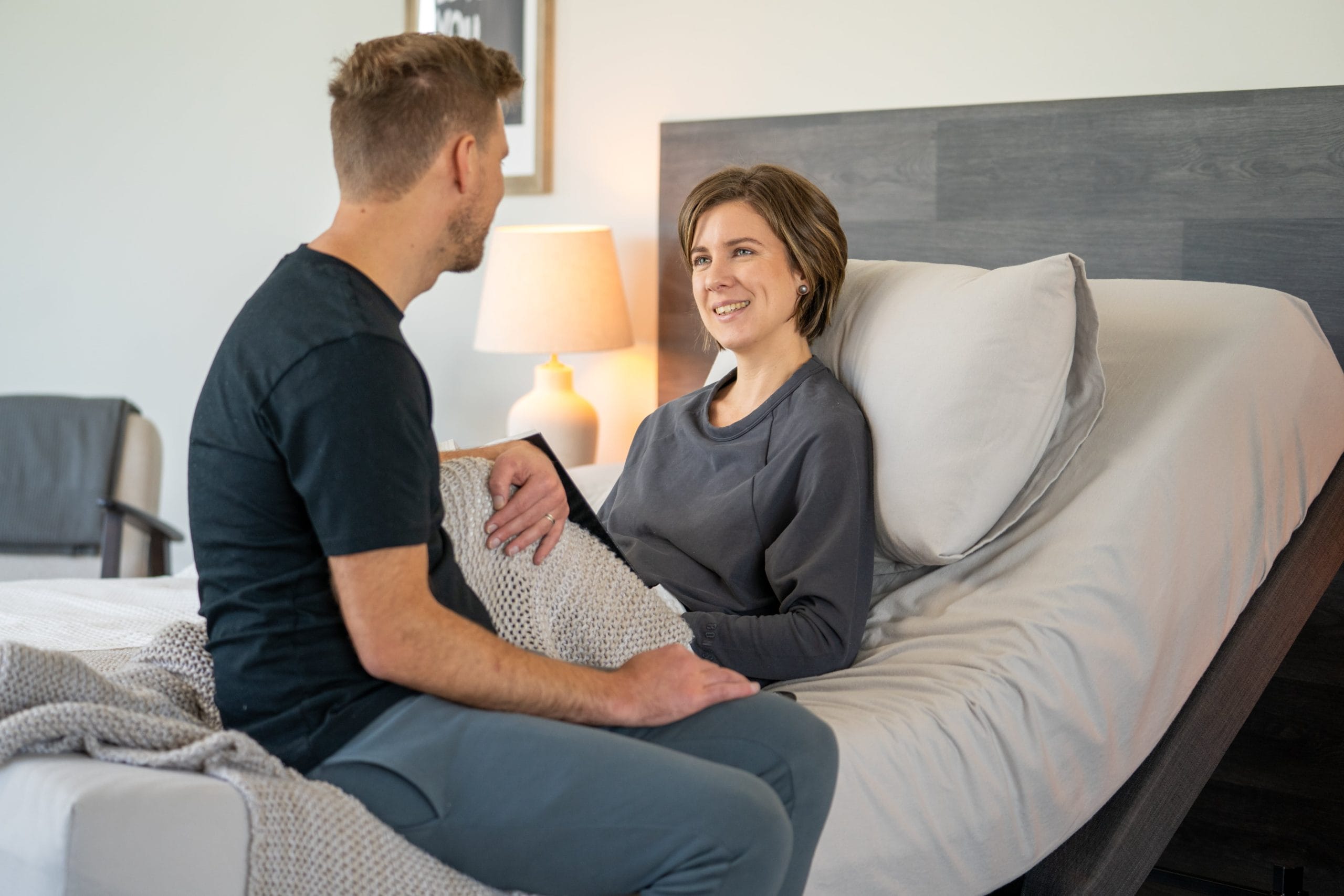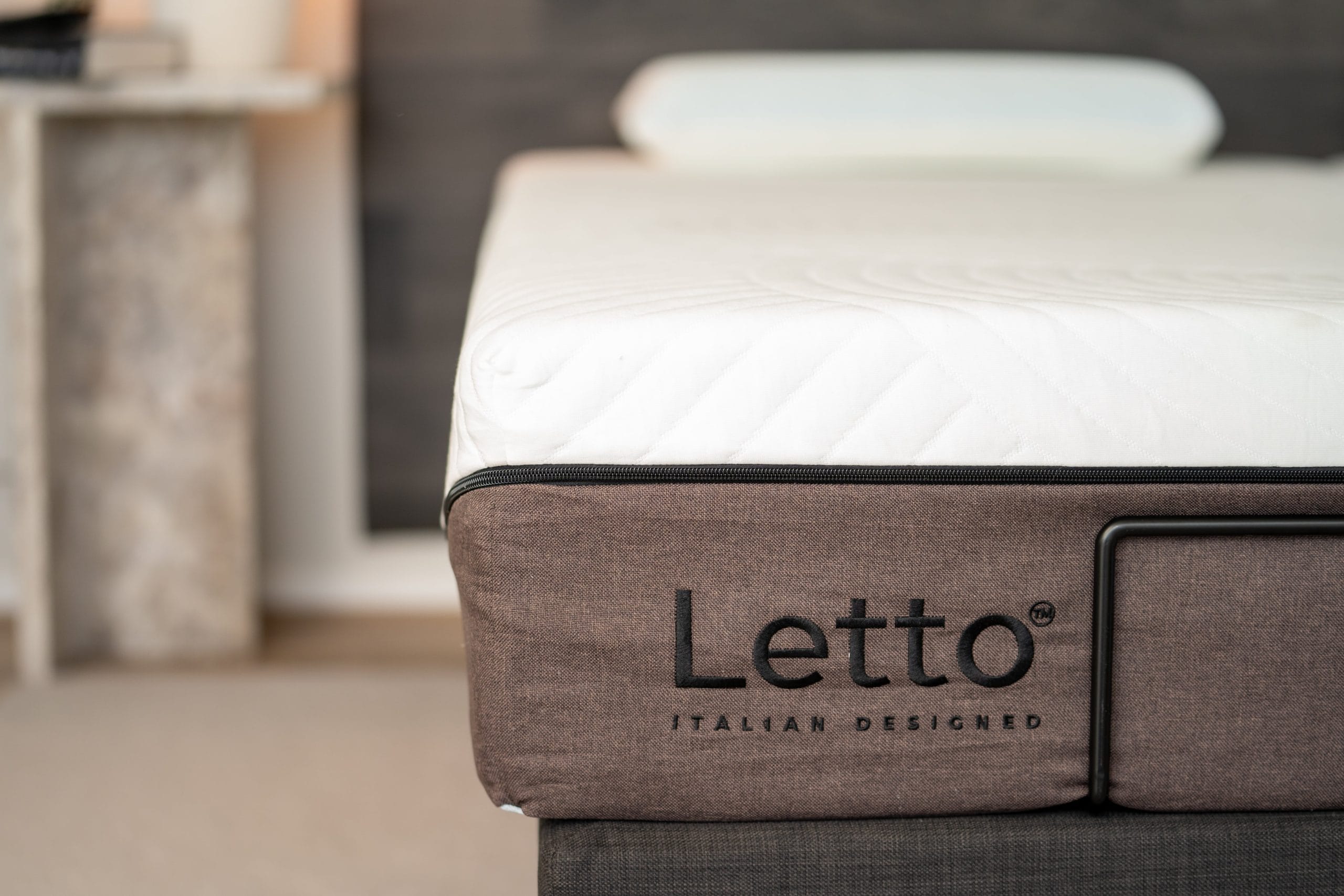
Tired of waking up to complaints about your snoring? Or maybe you’re the one losing sleep because of a noisy partner? Snoring isn’t just an annoyance—it can seriously affect your rest and health. The good news? The right mattress can make a huge difference.
In this guide, we’ll break down how your mattress impacts snoring, what to look for in a snoring-friendly bed, and which sleep solutions can help you (and your partner) finally get the quiet, restful sleep you deserve.
So, What Is Snoring – And Why Do We Do It?
Snoring is one of those things that seems harmless—until you’re the one dealing with it night after night. Whether it’s you waking up with a dry mouth and a sore throat or your partner throwing in the towel and moving to the spare room, snoring can seriously affect your sleep (and your relationships).
But why do we snore? It happens when airflow gets partially blocked while you sleep, causing vibrations in your throat. That’s what creates that familiar, not-so-pleasant sound. Sometimes, snoring is just an occasional annoyance, but it can also be a sign of poor sleep posture, nasal congestion, weight-related airway obstruction, or even an unsupportive mattress.
What many people don’t realise is that your mattress plays a big role in how much you snore. The right one can help keep your airway open, while the wrong one can make snoring worse.
Can a Mattress Really Help With Snoring?
Yes—and if your mattress is old, unsupportive, or simply not suited to your sleeping position, it might be making things worse.
Think about it—if your mattress lets your body sink too much or doesn’t keep your spine properly aligned, it can cause your airway to become restricted. This forces your body to work harder just to breathe while you sleep. The result? Louder snoring, more restless nights, and waking up feeling groggy instead of refreshed.
How the Right Mattress Helps Reduce Snoring
- Supports healthy spinal alignment, keeping your airway open
- Prevents excess sinking, so your head and neck aren’t forced into awkward angles
- Encourages side sleeping, which naturally reduces snoring
If you or your partner are tired of battling through sleepless nights, it might be time to consider whether your mattress is helping or hurting your ability to breathe freely.
How to Choose the Best Mattress for Snoring Relief

Firmness Level: Finding the Sweet Spot Between Soft and Supportive
Your mattress should provide enough support to keep your body in a neutral, well-aligned position—but still be comfortable enough to help you relax. If it’s too soft, your body sinks too much, which can push your airway into a more restricted position. Too firm, and you’ll feel uncomfortable and might toss and turn all night.
A medium-firm mattress is ideal for most snorers because it strikes the right balance between comfort and support. If you’re not sure what’s best, a hybrid mattress—which combines memory foam and coils—can give you the best of both worlds.
Memory Foam, Latex, or Hybrid – Which One Is Best?
Not all mattresses are created equal, especially when it comes to keeping your airway clear while you sleep.
- Memory Foam: Moulds to your body and keeps your spine aligned, which can help reduce airway blockages. A great option—just make sure it has cooling properties if you tend to sleep hot.
- Latex: More responsive and breathable than memory foam, making it easier to switch positions throughout the night.
- Hybrid: A combination of foam and coils that provides support, pressure relief, and airflow, which is great for people who want a well-rounded mattress.
If you’re looking for a mattress that helps keep your spine in a neutral position while also offering enough cushioning for pressure relief, the Letto Mattress is a great option. It provides the right balance of support and comfort to help side sleepers maintain an open airway, which can significantly reduce snoring.
Why Adjustable Beds Are a Game-Changer for Snorers

One of the best ways to minimise snoring is to elevate your head slightly while you sleep. This helps prevent gravity from pulling your tongue and throat tissues backward, keeping your airway clearer.
With an adjustable bed, you can customise your sleep position to reduce snoring and improve comfort. Studies show that even a slight elevation of 7-10 degrees can make a big difference.
For example, an adjustable bed can help position your upper body at the right angle to improve airflow, reducing nighttime interruptions from snoring. The Letto Adjustable Bed makes this easy, allowing you to adjust your sleeping position for better breathing and overall comfort.
Other Benefits of Adjustable Beds
- Reduces acid reflux and sleep apnoea symptoms
- Helps with neck and back pain by improving posture
- Enhances circulation and reduces pressure points
How Sleep Position Affects Snoring
Your sleeping position has a direct impact on how much you snore.
- Back Sleepers: Snoring is most common in this position because gravity pulls the tongue backward, partially blocking the airway. If you can’t switch to side sleeping, an adjustable bed or supportive pillow can help.
- Side Sleepers: The best position for reducing snoring, as it keeps your airway more open. A mattress with good pressure relief helps you stay comfortable while sleeping on your side. A medium-firm mattress, like the Letto Mattress, can help you stay in a side-sleeping position longer, preventing airway collapse.
- Stomach Sleepers: Less likely to snore but more likely to wake up with neck and back pain. A medium-firm mattress and a low-loft pillow can help maintain alignment.
For a deeper dive into sleep positions, check out What’s the Best Sleeping Position for Rejuvenating Rest?.
The Right Pillow Can Make a Huge Difference

Your mattress isn’t the only thing affecting your snoring—your pillow is just as important. If your pillow is too thick, it can push your head forward, restricting airflow. If it’s too flat, it may not provide enough support to keep your airway open.
Best Pillows for Snoring Relief
- Memory Foam Pillows: Contour to your neck for better support
- Wedge Pillows: Slightly elevate your head to improve airflow
- Adjustable Loft Pillows: Allow you to customise the height for the best spinal alignment
If you’re struggling to find the right pillow height, an adjustable pillow can help by letting you fine-tune the support to fit your sleep position. The Letto Pillow is designed to keep your head and neck in the optimal position, which can help maintain an open airway and reduce snoring.
Why Investing in the Right Mattress Matters
Snoring isn’t just an inconvenience—it can have real consequences for your energy levels, health, and even your relationships. When your airway is restricted, your body has to work harder to breathe, leading to fatigue, poor concentration, and increased health risks over time.
A high-quality mattress can transform your sleep quality by improving posture, reducing airway blockages, and making it easier to sleep comfortably in a position that reduces snoring. The right mattress won’t just help you—it can make a huge difference for your partner, too.
Why Letto Is the Best Choice for Snoring Relief

At Letto, we design mattresses with comfort, support, and better sleep in mind. Our mattresses and adjustable beds are built to encourage proper spinal alignment, promote airflow, and provide the right level of firmness to help reduce snoring.
If you’re ready for quieter nights, better sleep, and waking up refreshed, it’s time to upgrade your sleep setup. Explore Letto’s snoring-friendly mattresses today—your sleep (and your partner) will thank you.
